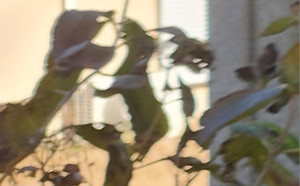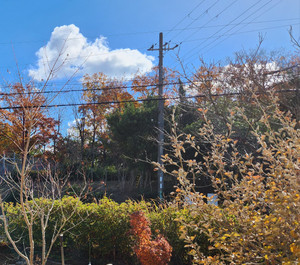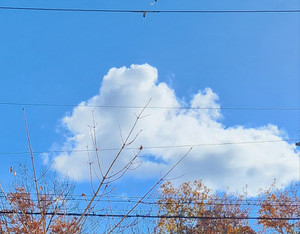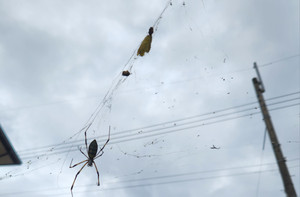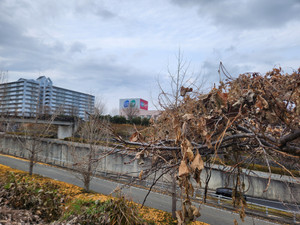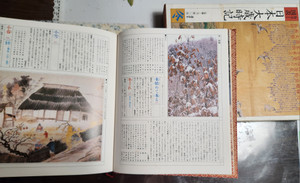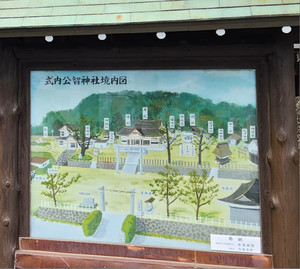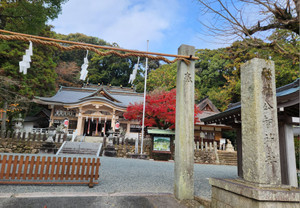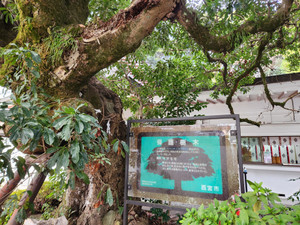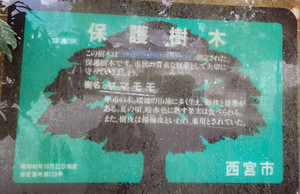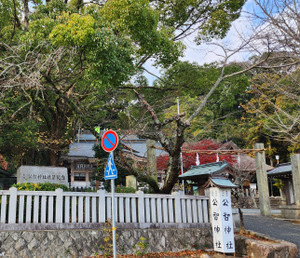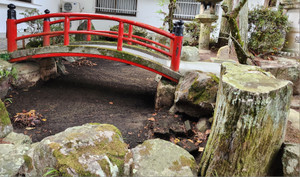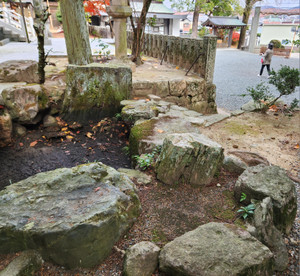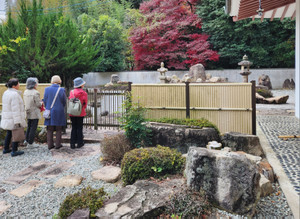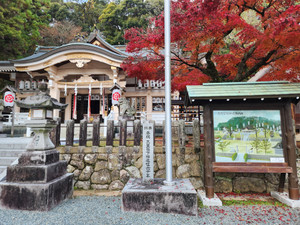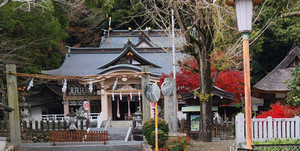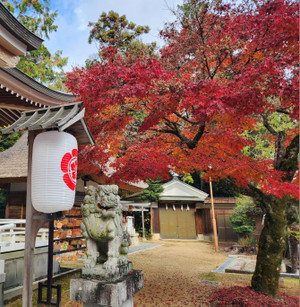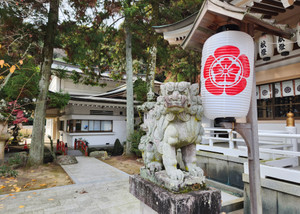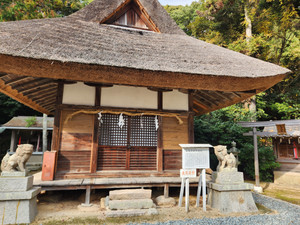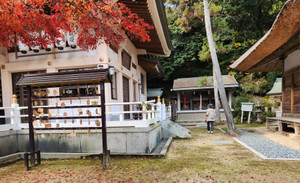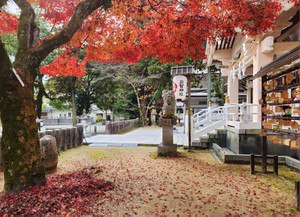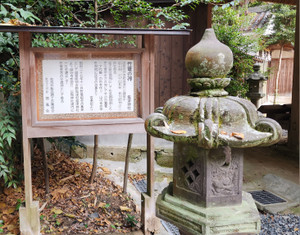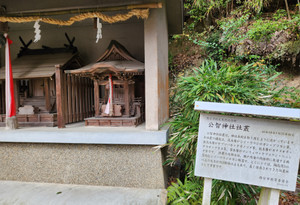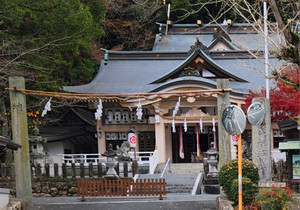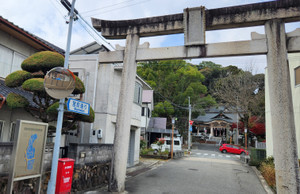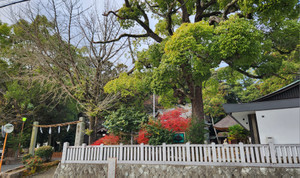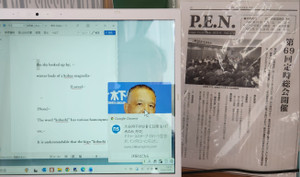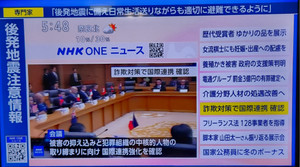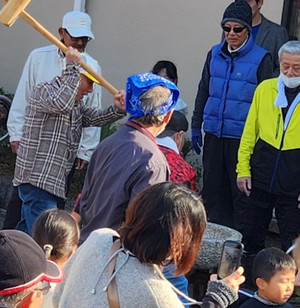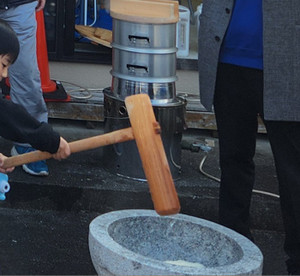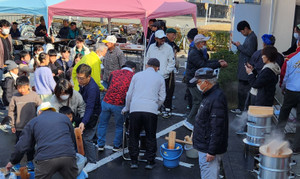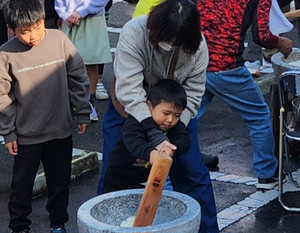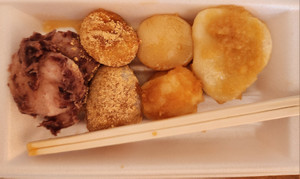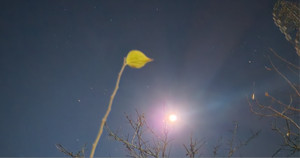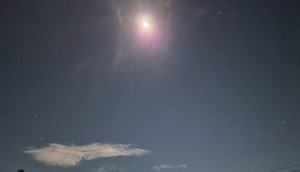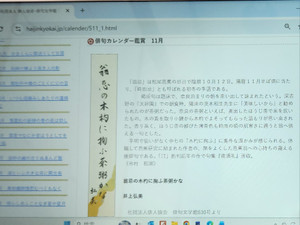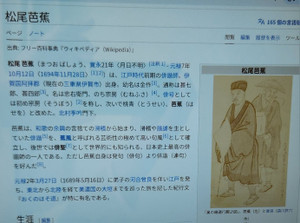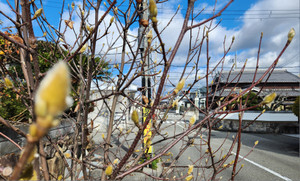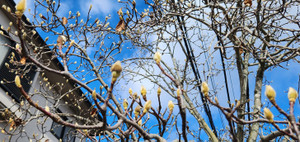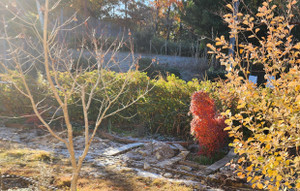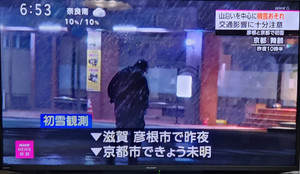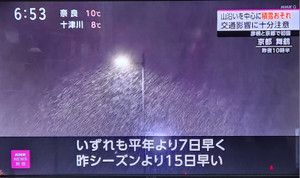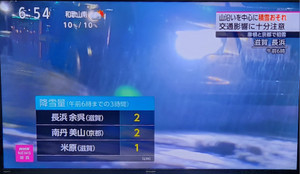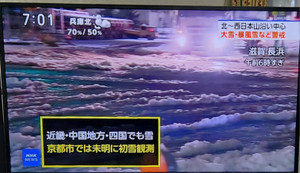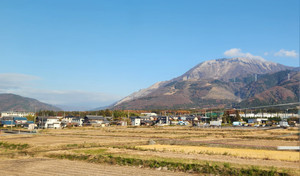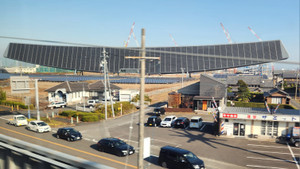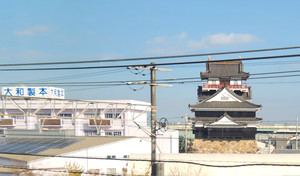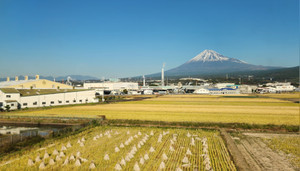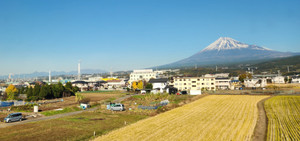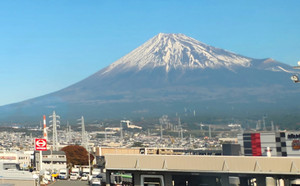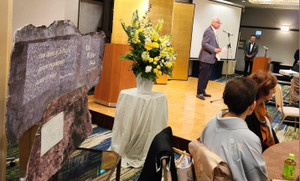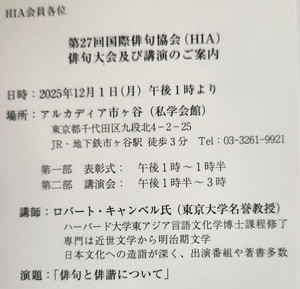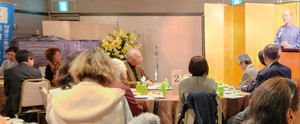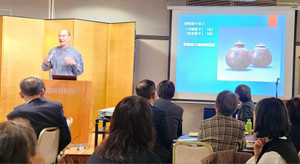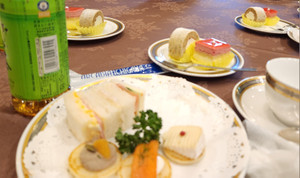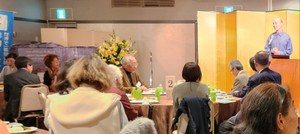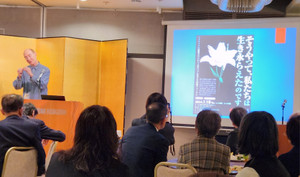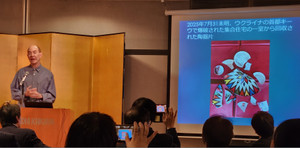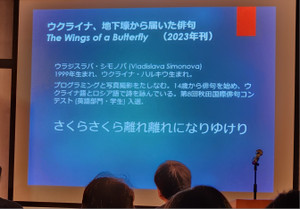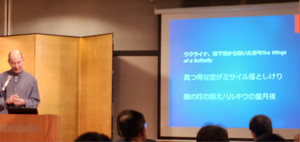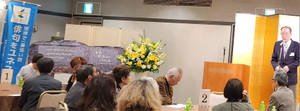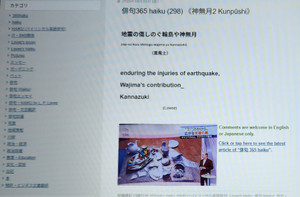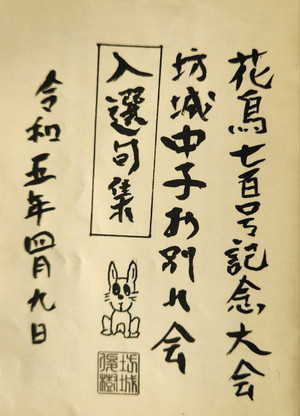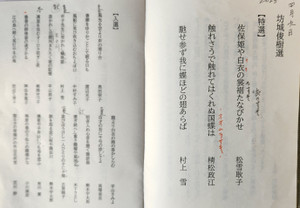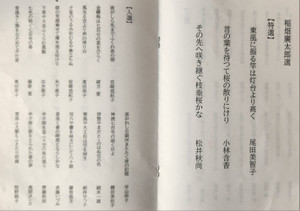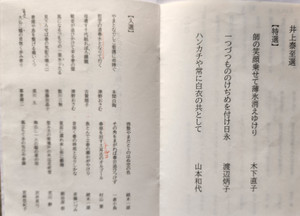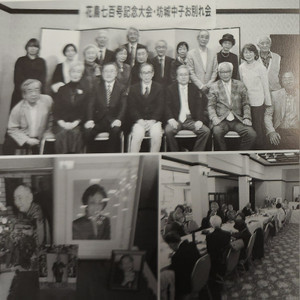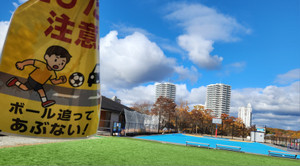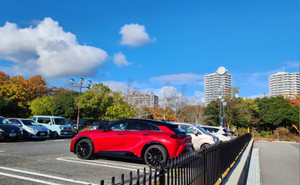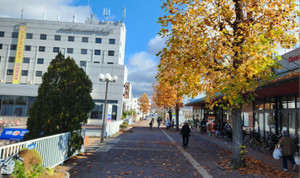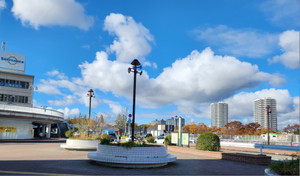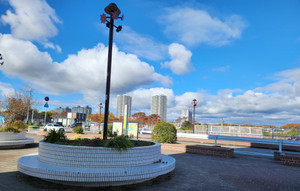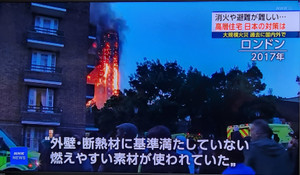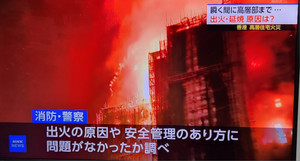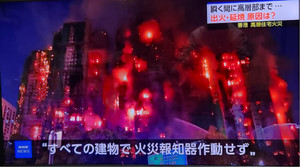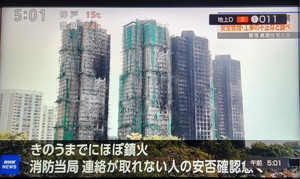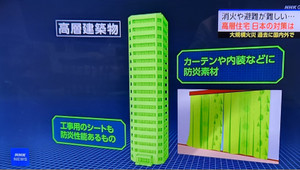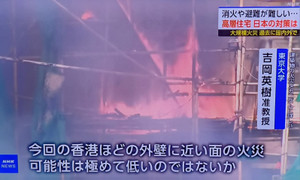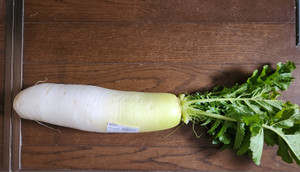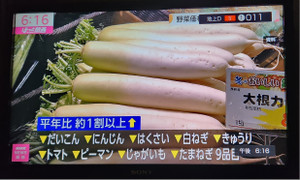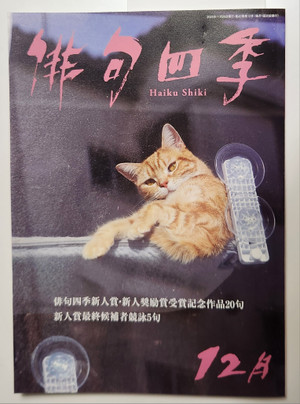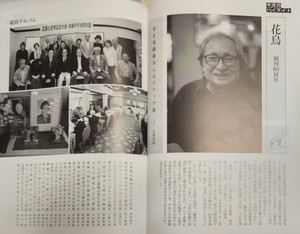2025年12月15日 (月)
2025年12月14日 (日)
俳句365 haiku (342)《小春雲 Kunpūshi》
小春雲亡きチュヌのごとふんわりと
(koharugumo naki-chunu-no-goto funwari-to)
(薫風士)
掲句は、小春日の散歩中に偶々見かけた白雲がサモエド犬の「臥せ」の姿に見えたので詠んだ即興句です。
青色文字をクリック(タップ)して、「愛犬『チュヌ』の追悼句と鉦叩」や「チュヌの俳句・四季(Haiku of Chunu・Four Seasons)」をご覧頂ければ幸いです。
2025年12月13日 (土)
2025年12月12日 (金)
俳句365 haiku (340)《冬ざれ Kunpūshi》
冬ざれや雲の流れの速まりて
(huyuzare-ya kumo-no-nagare-no hayamarite)
(薫風士)
bleak wintry sky;
clouds flow;
swiftly
(Lovee)
カラー図説 日本大歳時記に、「冬ざれ」の興味深い解説がありますが、「冬されば」や「冬され」などの誤用が定着して冬の季語として現在の用法になったようです。
Comments are welcome in English or Japanese only.
Click or tap here to see the latest article of “俳句 365 haiku”.
2025年12月11日 (木)
俳句365 haiku (339)《時雨2 Kunpūshi》
片時雨ドクターヘリか今日も行く
(katashigure dokutāheri-ka kyo-mo-yuku)
(薫風士)
katashigure_
flying above today, too;
Doctor-Heli?
(Lovee)
(Note)
The term “katashigure” means “early-winter shower-like rain falling on an area, while visible other area is sunny”.
掲句は、カ行の韻を活用しています。
最後の写真は、WEBで検索したドクタ-へリの解説記事です。タップ拡大してご覧下さい。
Comments are welcome in English or Japanese only.
Click or tap here to see the latest article of “俳句 365 haiku”.
2025年12月10日 (水)
俳句365 haiku (338)《紅葉散る Kunpūshi》
公智神社紅葉散りゆく硅化木
(kuchijinja momiji-chiriyuku keikaboku)
(薫風士)
Kuchijinja_
autumnal leaves falling;
keikaboku-stones
(Lovee)
ここをクリック(タップ)すると、公智神社のホームページをご覧になれます。
公智神社は西宮市山口町にある氏神様ですが、石の鳥居の他に竹竿に注連縄を吊るした木柱の鳥居や狛犬の他に阿吽の獅子、硅化木、ヤマモモや椎の古木等々、紅葉のシーズンのみならず四季を通じて吟行を楽しめると思います。
地方の小規模な神社ですが、俳句の様々な題材が凝縮されたような俳句愛好家にお勧めの神社です。
看板のある写真をタップ拡大すると、由緒を読むことが出来ます。
Comments are welcome in English or Japanese only.
Click or tap here to see the latest article of “俳句 365 haiku”.
2025年12月 9日 (火)
俳句365 haiku (337)《漱石忌 Kunpūshi》
真贋の見極め難し漱石忌
(shingan-no mikiwame-katashi sōseki-ki)
(薫風士)
real or fake;
difficult to discern_
anniversary of Sōseki’s death
WEB検索をしていると、何故か「木下グループ」の記事がポップアップされたので、そのパソコン画面を写真に撮り、座興に掲載しました。
SNSなどで偽物や詐欺サイトがある世相なのでAIの仕業か何か分かりませんが、薫風士とは何の関係もありません。誤解しないで下さいね。
Comments are welcome in English or Japanese only.
Click or tap here to see the latest article of “俳句 365 haiku”.
2025年12月 8日 (月)
俳句365 haiku (336)《餅・餅つき Kunpūshi》
我が町の笑みの集ひや餅搗き会
(wagamachi-no emino-tsudoi-ya mochitsuki-e)
(薫風士)
event of our town:
people gather with smiles;
rice-cake-making party
(Lovee)
これらの写真は2025年12月7日(日)に開催された餅つき大会です。
2024年は12月8日の日曜日に開催されました。
ご存じでしょうが、1941年12月8日に真珠湾攻撃により太平洋戦争が勃発しました。
ここをクリック(タップ)して、「餅つきや平和日本の十二月」をご覧下さい。
ここをクリックすると、「『終戦記念日・墓参・盆』の俳句」をご覧になれます。合わせて読んで頂けると幸いです。
2025年12月 7日 (日)
俳句365 haiku (335)《翁忌・時雨忌 Kunpūshi》
翁忌や北斗七星月を愛で
(okinaki-ya hokutoshichisei tsuki-o-mede)
(薫風士)
anniversary of Bashō’s death_
viewing the moon and Dipper:
enjoyment
(Lovee)
最初の2枚の写真は、タップ拡大すると北斗七星(Dipper)が見えます。
芭蕉は、ウイキペディアによると、元禄7年10月12日(旧暦)、1694年11月28日(新暦)に亡くなっています。
芭蕉は「桃青」という俳号を初期に用いていたので、俳句の内容次第では、「時雨忌」などよりも明るい季語として、「桃青忌」を使用すると良いと思います。
最後の2枚の写真は、薫風士がWEB検索で偶々目にした記事、俳人協会・俳句文学館の「俳句カレンダー鑑賞 令和5年11月」やウイキペディアの解説記事の一部分です。
Comments are welcome in English or Japanese only.
Click or tap here to see the latest article of “俳句 365 haiku”.
2025年12月 6日 (土)
俳句365 haiku (334)《冬芽 Kunpūshi》
平穏や辛夷の冬芽仰ぐ空
(heion-ya kobushi-no-fuyume aogu-sora)
(薫風士)
peaceful_
the sky looked up by;
winter buds of a kobus magnolia
(Lovee)
(Note)
The word “kobushi (こぶし)” has various homonyms: “fist”(拳), “old-time samurai”(古武士), “vibrato”(小節), etc.
It is understandable that the kigo (季語) “kobushi 辛夷” is cherished and appreciated so much by haiku poets (俳人).
These pictures show sceneries of some area where Kunpushi take a manpo (まんぽ) walk.
Comments are welcome in English or Japanese only.
Click or tap here to see the latest article of “俳句 365 haiku”.
2025年12月 5日 (金)
俳句365 haiku (333)《初雪 Kunpūshi》
初雪や今朝の花壇の薄光
(hatsuyuki-ya kesa-no-kadan-no usubikari)
(薫風士)
first snow_
slightly white glow;
flower bed this morning
(Lovee)
The first picture shows a flower bed under construction in our garden, and the other pictures show partial portions of NHK-TV scenes which Kunpūshi watched on December 4, 2025.
Comments are welcome in English or Japanese only.
Click or tap here to see the latest article of “俳句 365 haiku”.
2025年12月 4日 (木)
俳句365 haiku (332)《旅小春 Kunpūshi》
旅小春ひかりの窓の景を愛で
(tabi-koharu hikari-no-mado-no kei-o-mede)
(薫風士)
winter trip on a spring-like warm day_
enjoyable sceneries;
through windows of Hikari 500
(Lovee)
二番目の写真のように、 伊吹山がうっすらと白く冠雪していましたが、最後の六枚の写真のように、富士山はくっきりと美しく冠雪していました。
Comments are welcome in English or Japanese only.
Click or tap here to see the latest article of “俳句 365 haiku”.
2025年12月 3日 (水)
俳句365 haiku (331)《小春日 Kunpūshi》
小春日や俳句の縁笑みの宴
(koharubi-ya haiku-no-enishi emi-no-en)
(薫風士)
spring-like warm day_
party full of smiles;
through bonds of haiku
(Lovee)
See the last picture, or
俳句365 haiku (298) 《神無月2 Kunpūshi》
地震の傷しのぐ輪島や神無月
年男パカパカ急げ和を目指し (薫風士)
俳句愛好家や写真愛好家、詩人など、年男・年女に限らず、ペンクラブの方々なども句碑の除幕式に参加してくれて、多くの人々と一緒に、ウクライナやパレスチナ等への軍事攻撃の停止と世界平和を祈ることを願っています。
Comments are welcome in English or Japanese only.
Click or tap here to see the latest article of “俳句 365 haiku”.
2025年12月 2日 (火)
俳句365 haiku (330) 《小春の縁 Kunpūshi》
小春の縁断捨離思案句集読む
(koharu-no-en danshari-shian kushū-yomu)
(薫風士)
winter en warm like a spring day;
reading haiku-collections_
indecisive decluttering
(Lovee)
Comments are welcome in English or Japanese only.
Click or tap here to see the latest article of “俳句 365 haiku”.
2025年12月 1日 (月)
俳句365 haiku (329) 《縁小春 Kunpūshi》
片隅の自在机や縁小春
(katasumi-no jizaitukue-ya en-koharu)
(薫風士)
writing haiku-blogs;
my favorite table for double-purpose_
spring-like warm en in winter
(Lovee)
(Note)
In the above haiku, the word “en” means “縁側: veranda within my house”.
Comments are welcome in English or Japanese only.
Click or tap here to see the latest article of “俳句 365 haiku”.
2025年11月30日 (日)
2025年11月29日 (土)
2025年11月28日 (金)
俳句365 haiku (326) 《大根の葉 Kyoshi》
流れゆく大根の葉の早さかな
(nagare-yuku daikon-no-ha-no hayasa-kana)
(虚子)
a leaf of Japanese radish;
flowing away_
what a rapidity!
(Translated by Lovee)
The last picture has nothing to do with the above haiku, but it is put on to show current increase in price of vegetables as shown in the partial portion of NHK-TV scenes which Kunpūshi watched on November 28, 2025.
2025年11月27日 (木)
俳句365 haiku (325)《ペンの日 Kunpūshi》
ペンの日や結社繚乱俳句四季
(pennohi-ya kessha-ryōran haiku-shiki)
(薫風士)
Pen Day_
varieties of haiku-associations
“Haiku Shiki”
(Lovee)
(Note)
As shown in the last picture (P.71 of “俳句四季”), Kunpūshi is standing in the second row as one of participants in the party commemorating the 700th publication of “花鳥”.
Comments are welcome in English or Japanese only.
Click or tap here to see the latest article of “俳句 365 haiku”.
2025年11月26日 (水)
俳句365 haiku (324)《勤労感謝の日 Kunpūshi》
若者に謝すや勤労感謝の日
(wakamono-ni shasu-ya kinrokanshanohi)
(薫風士)
expressing my thanks to;
young people_
Labor Thanksgiving Day
(Lovee)
To understand the above haiku, tap here and see "若者に謝すや勤労感謝の日".
Comments are welcome in English or Japanese only.
Click or tap here to see the latest article of “俳句 365 haiku”.
